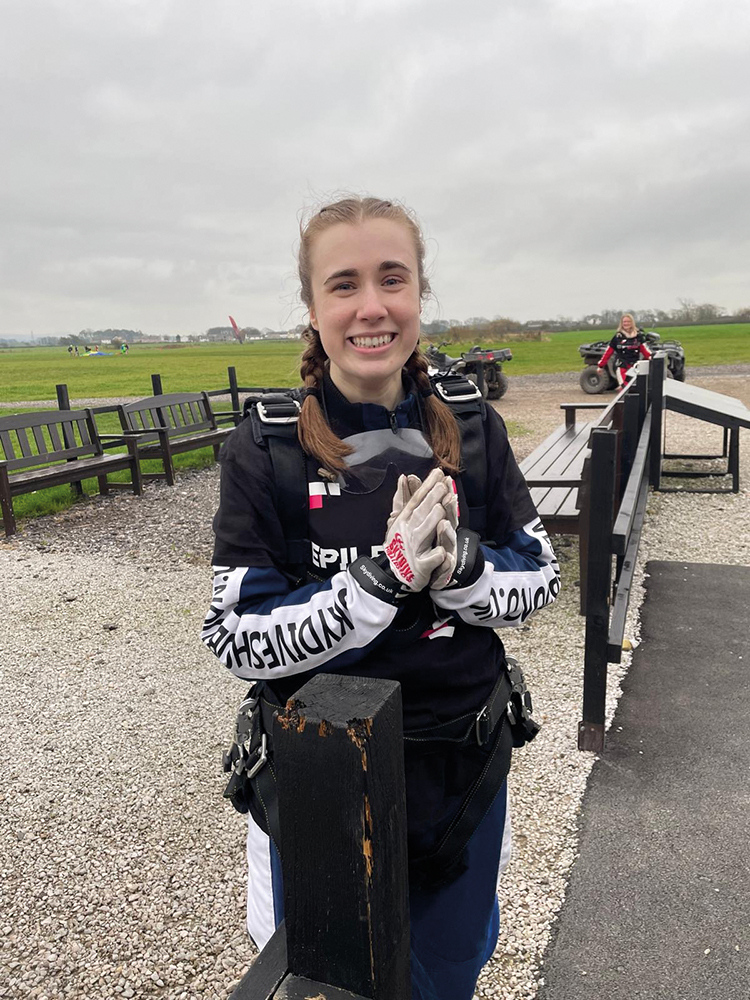If you would like to talk to someone about epilepsy, our trained advisers are here to help.
 Epilepsy Action is calling for all police officers to receive epilepsy training, following the death of Gaia Pope-Sutherland who died after going missing in November 2017.
Epilepsy Action is calling for all police officers to receive epilepsy training, following the death of Gaia Pope-Sutherland who died after going missing in November 2017.
Gaia had epilepsy and mental health issues. Her story was featured in the BBC documentary Gaia: A Death on Dancing Ledge on BBC iPlayer and BBC One.
When Gaia was first reported missing in 2017, Dorset police assessed the case as medium risk. However, an investigation by the Independent Office for Police Conduct found this assessment “flawed” and “questionable” in light of Gaia’s mental health issues and epilepsy.
Gaia left her aunt’s home at 3.40pm on November 7, 2017, but a formal missing person report was not logged by police until 6.15pm.
Following Gaia’s death, the Independent Office for Police Conduct recommended that Dorset Police amend its missing person policy to include a category of people who are missing due to illness or injury.
Epilepsy Action is urging police forces across the UK and the College of Policing to ensure missing people with an epilepsy diagnosis are treated as high risk.
The charity is also calling on forces to undertake epilepsy training and has asked the police to confirm what action has been taken following receipt of the coroner’s report into Gaia’s .
Daniel Jennings, senior policy and campaigns officer at Epilepsy Action, said: “Gaia was repeatedly let down by the very authorities that were supposed to protect vulnerable people like her. Her epilepsy and mental distress were clear warning signs of how at risk she was and yet Dorset Police failed to take them seriously. She deserved more.”
The coroner’s report into preventing future deaths raised concerns about the lack of communication between epilepsy specialists, mental health teams and GPs. It heard from an epilepsy specialist nurse (ESN) in Dorset who said she was one of only two ESNs for the 10,000 adults with active epilepsy in the region.
According to the report, the nurse said she did not feel that there were sufficient resources to do all the things that need to be done in treating the patients.
Gaia was diagnosed with epilepsy in 2013. Went she went missing, she did not have epilepsy medication with her. According to the Guardian, at the inquest, Michelle Knight, who treated Gaia for two years, told the jury that her condition was complex. Gaia once had 15 seizures in two days and her epilepsy became so severe that she could not take a bath or shower unsupervised.
Jennings added: “It’s not enough to say lessons must be learned – action must now be taken. Epilepsy Action is now seeking assurances from all forces across England and Wales to ensure they have the right policies and training in place to support people with epilepsy. We know Gaia had complex epilepsy, experiencing severe seizures. And yet the lack of communication and resource issues with her health teams resulted in her yet again being failed by the system. Gaia’s death could have been prevented and a tragic situation like this can never happen again.”
Gaia died aged 19. Her body was found 11 days after her family first reported her missing and had died from hypothermia. She was found on a cliff near her home in Swanage, Dorset.
In her report, the coroner, Rachael Clare Griffin, warned: “There could be future deaths due to the lack of knowledge police officers in England and Wales have around life threatening illnesses, such as epilepsy.”
She also called on the College of Policing to provide “national training to all staff across all police forces, on illnesses such as epilepsy”.
The coroner added: “Police officers provided evidence that they did not have training on epilepsy and mental health conditions such as post ictal psychosis. It is important for police officers dealing with people with complex needs, such as epilepsy, psychosis, PTSD and sexual trauma, to know how to deal with such individuals.”
Epilepsy Action has contacted the police through a number of Freedom of Information requests and expects to receive replies in the next 30 days.
To watch the documentary go to: www.bbc.co.uk/iplayer/episode/p0fzy3kl/gaia-a-death-on-dancing-ledge-series-1-episode-1
Here to support you
Send us your question
Send a question to our trained epilepsy advisers. (We aim to reply within two working days).
More articles



